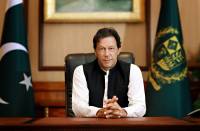The Brazilian Foreign Ministry has rejected calls from the United Nations to allow jailed former President Luiz Inacio Lula da Silva full access to the public and media during his attempt to run for a further term in this year’s Presidential election while languishing behind bars. While Brazil’s democracy was always far from perfect in terms of transparency and functionality, the dubious imprisonment of Lula makes it clear that today Brazil is little more than a political-military oligarchy which presides over pseudo-democratic elections where candidates who are effectively “pre-approved” by the oligarchic elite compete against one another to see who will be the new public face of the same status quo. This will likely be further enforced if as expected, the pro-regime judiciary rules that Lula’s name cannot be on the ballot in the forthcoming election.
Democracy means nothing if popular candidates are not allowed to fully and legally participate in elections. Matters for Lula have been all the more frustrated by the fact that earlier this summer, a judge ordered his release from prison only to be controversially overruled by the same judge who handed down Lula’s initial prison sentence on widely disputed “corruption” allegations which even some of Lula’s fairer opponents agree are trumped up allegations. But while Brazil’s election scheduled for the 7th of October is already marred by controversy due to the suppression of Lula’s ability to actively campaign, in Pakistan a country whose democratic institutions have long been under threat from a variety of external and internal forces has undergone a renaissance in democracy in the truest sense.
This summer’s general election in Pakistan saw Imran Khan and his PTI party supplant not only the corrupt legacy parties whose political dynasties had ruled the country for decades but PTI also demolished public support for fringe and extremist parties who in recent years often filled the void left open by the un-inspirational politics of the mainstream PML-N and PPP factions. Today, Imran Khan was sworn in as the country’s Prime Minister in what represents only the second peaceful transition of power in the country’s history and the first in which a formerly upstart party came to power after riding a nationwide wave of popular support.
While the dethroned incumbent party and now opposition group PML-N have decried Imran Khan’s ascension to democratic leadership of the nation, the new Pakistani Prime Minister looks to harmonise the nation in several important areas including the development of a mature relationship between the elected government and the military establishment, a reformed tax system that functions along the liens of equality and fairness, social policies that root out extremism by draining the swamp from which extremism in Pakistan has traditional fomented and overseeing a process that will witness regional economic warlords become supplanted by a national system of welfare and investment into communities throughout all provinces of the nation.
This is democracy in the truest sense: a popular leader working to elevate the condition of all the people without fear or favour. And yet it is Pakistan where the US media have taken up the age-old talking points of Imran Khan’s domestic opponents in seeking to project failure onto his government when it has only been in office for several hours. By contrast, while Brazil is in geopolitical backyard of the United States, little is said about the fact that a man who by most accounts is the nation’s most popular politician languishes in prison while the powers that be blatantly dismiss a perfectly reasonable call from the United Nations to allow Lula to have access to the normal provisions allocated to any major political candidate in a national election.
There is scarcely a political system in the world without some levels of both noticeable and covert corruption, but in the case of Brazil vs. Pakistan, the double standards applied to equal and opposite situations are not so much shocking as they are ethically repugnant.
Making matters all the more surreal, Pakistan’s people have achieved the oversight of a peaceful democratic transition to a new and inspiring political force in spite of a prolonged struggle against terrorism on its frontiers with Afghanistan and continued provocations from India and other foreign agents who have long sowed chaos and discord in Pakistan’s most vulnerable regions.
But while Pakistan has achieved a democratic success against tremendous odds, Brazil is busy wreaking its own institutions from within all for the purpose of keeping an old discredited elite in power at the expense of a former leader that a majority of Brazilians would like to see back in office.
Therefore, when one hears cynical statements about Pakistan’s democratic achievements while hearing nothing about the inhumane treatment of former President Lula and his millions of supporters throughout Brazil, one should take notice that what mainstream liberal pundits say about Pakistan actually applies to Brazil.



